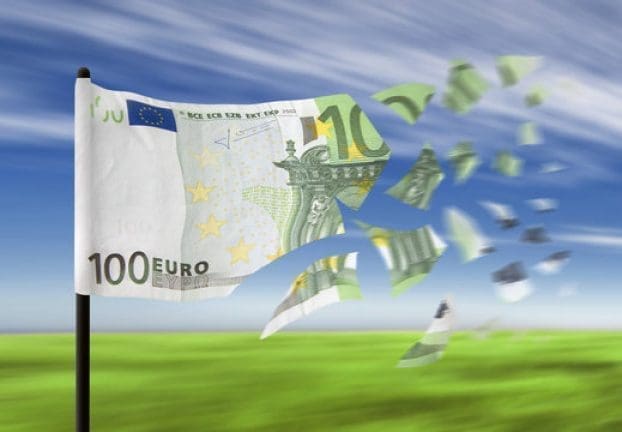The European Central Bank anticipates a reduction in inflation, but with a major caveat: companies must allow their profits to decline in order to pay higher salaries.

The driver of domestic price pressures in the eurozone is transitioning from corporate profits to wages, European Central Bank officials said this week as they laid the foundation for an extended period of high interest rates.
Workers, who have bore the burden of high inflation in the eurozone, are anticipated to regain a portion of their lost purchasing power through wage increases in 2018. After pandemic lockdowns, companies were able to increase profits despite swiftly rising prices and demand for services such as restaurants and travel during the previous year.
Wages are anticipated to catch up this year, according to bank officials in recent days.
This adds to the difficulty faced by policymakers, as wages adapt slowly and risk making inflation even more persistent, keeping it above the 2 percent target of the central bank. This may force them to take more drastic measures to halt the economy.
However, policymakers are optimistic that they can avoid this scenario, and they do not believe the region is in a wage-price spiral, in which wages drive prices higher and inflation risks running amok.

Philip Lane, the bank’s chief economist, said in an interview on the margins of the bank’s annual conference in Sintra, Portugal, on Wednesday, “We foresee wage growth to be quite robust, but inflation to continue falling.” “Because last year’s profitability was so high, there is room for profits to decline in order to absorb some of these wage increases.”
But crucially, achieving this objective depends on companies actually allowing their profits to sustain higher wage costs, as opposed to attempting to transfer them on to customers via price increases.
This is not the first time the central bank has expressed concern about corporate profits and inflation. Earlier this year, other bank policymakers, including executive board member Fabio Panetta, cautioned that companies might continue to increase their profit margins despite falling costs, which would prolong inflation.
From the middle of last year to the end of March, profits accounted for approximately sixty percent of domestic price pressures, according to data released by the central bank on Thursday.

This year, “we believe that companies will begin to realize that they’ve reached the limit of what their customers can absorb,” Mr. Lane said.
The European Central Bank has increased its efforts to collect data that is typically only disclosed with a significant time lapse and a lack of specificity due to the importance of profits in determining the inflation outlook. Mr. Lane stated that this year the central bank began monitoring quarterly calls in which company executives discuss financial results with analysts as part of the policy-setting process.
Inflation rates in the eurozone have declined significantly since their zenith last year, and data released on Thursday revealed that Spain’s inflation rate fell below 2 percent in June. Other metrics of domestic price pressures, however, remain quite robust. The June inflation rate for the entire eurozone will be released on Friday. Economists polled by Bloomberg anticipate the headline rate to fall to 5.6% from 6.1% in May, while core inflation, which excludes energy and food prices, is projected to increase to 5.5% from 5.35%.
The central bank anticipates the headline rate of inflation to be approximately 3 percent next year. The Bank for International Settlements, which serves as a bank for central banks, shares Mr. Lane’s concern that the “last kilometer” of achieving the goal may prove more difficult than anticipated.

Mr. Lane stated, “We have a 2 percent target, not a 3 percent target.” There is still much work to be done to reduce the unemployment rate from 3 to 2 percent.
Beyond July, when the central bank is expected to raise rates, Mr. Lane said it was best to have “no signals” about what policymakers would do due to the uncertainty surrounding the course of inflation, but he anticipated that interest rates would restrain economic growth for “quite some time.”
However, other members of the bank’s Governing Council have suggested that interest rates will need to be raised once more in September. Christine Lagarde, the president of the bank, pushed back this week against investors’ expectations that interest rates will be lowered next year, stating that monetary policy must be “restrictive” and remain so “for as long as necessary.”

